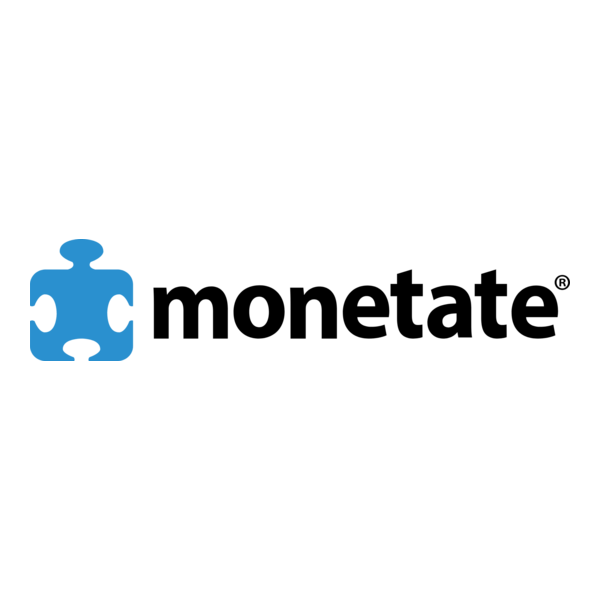
Monetate: Complete Buyer's Guide
Enterprise ecommerce personalization platform unifying testing, AI recommendations, and customer segmentation for omnichannel retailers.
Monetate positions itself as an enterprise-focused ecommerce personalization platform that unifies A/B testing, AI-powered recommendations, and customer segmentation in a single interface. The company targets mid-market to enterprise retailers seeking to consolidate fragmented personalization workflows, distinguishing itself from broader platforms through deep ecommerce specialization and integrated merchandising capabilities[48][50].
Market Position & Maturity
Market Standing
Monetate occupies a specialized niche in ecommerce personalization, competing against broader platforms like Dynamic Yield and enterprise solutions from Adobe and Salesforce while maintaining focus on retail-specific applications[44][48].
Company Maturity
Company maturity indicators include successful enterprise customer implementations across multiple industries and geographies. Helly Hansen's deployment across 19 countries with multiple languages and currencies demonstrates operational scale and international capability[53].
Strategic Partnerships
Strategic partnerships and ecosystem positioning remain limited in available research, though the Certona acquisition indicates strategic capability expansion.
Longevity Assessment
Long-term viability assessment suggests stability through specialized market focus and demonstrated customer success, though comprehensive market share data remains limited. The platform's enterprise customer base and measurable ROI delivery provide confidence indicators for continued operation and development[48][52][53].
Proof of Capabilities
Customer Evidence
Monetate demonstrates proven capabilities through documented implementations across major retailers including Office Depot, Helly Hansen, and Landmark Group, showcasing platform effectiveness across diverse retail segments[48][52][53].
Quantified Outcomes
Office Depot's implementation generated $6.9 million in additional revenue within four months of deploying Monetate's 1:1 personalization engine[52]. Helly Hansen achieved 100% revenue-per-session lift on product detail pages through dynamic testing and 28% increase in men's category performance via personalized recommendations[53]. Landmark Group documented 38.9% revenue-per-session uplift, 4.2% average order value increase, and 3% conversion rate improvement using Monetate's hybrid approach[48].
AI Technology
Monetate's Orchid AI engine integrates machine learning, natural language processing, and large language models to analyze customer behavior and predict purchase intent in real-time[47].
Architecture
The platform's hybrid filtering approach combines collaborative filtering based on customer behavior patterns with content-based recommendations using product attributes, enabling sophisticated merchandising control through the acquired Certona recommendation engine[41][47].
Primary Competitors
Monetate competes against broader platforms like Dynamic Yield and enterprise solutions from Adobe and Salesforce[44][48].
Competitive Advantages
Monetate's primary differentiation lies in its unified workflow for testing and personalization, eliminating the need to coordinate multiple tools that competitors often require[48][50]. The platform's ecommerce specialization provides deeper functionality for retail-specific use cases compared to broader marketing automation platforms[48].
Market Positioning
The company targets retailers seeking sophisticated personalization without the complexity of full marketing automation suites, positioning between comprehensive enterprise platforms and simple recommendation widgets[48].
Win/Loss Scenarios
Monetate likely wins against competitors when organizations prioritize unified testing-personalization workflows, ecommerce specialization, and omnichannel consistency[47][48].
Key Features

Pros & Cons
Use Cases
Featured In Articles
Comprehensive analysis of Recommendation Testing for Ecommerce for Ecommerce businesses and online retailers. Expert evaluation of features, pricing, and implementation.
How We Researched This Guide
About This Guide: This comprehensive analysis is based on extensive competitive intelligence and real-world implementation data from leading AI vendors. StayModern updates this guide quarterly to reflect market developments and vendor performance changes.
58+ verified sources per analysis including official documentation, customer reviews, analyst reports, and industry publications.
- • Vendor documentation & whitepapers
- • Customer testimonials & case studies
- • Third-party analyst assessments
- • Industry benchmarking reports
Standardized assessment framework across 8 key dimensions for objective comparison.
- • Technology capabilities & architecture
- • Market position & customer evidence
- • Implementation experience & support
- • Pricing value & competitive position
Research is refreshed every 90 days to capture market changes and new vendor capabilities.
- • New product releases & features
- • Market positioning changes
- • Customer feedback integration
- • Competitive landscape shifts
Every claim is source-linked with direct citations to original materials for verification.
- • Clickable citation links
- • Original source attribution
- • Date stamps for currency
- • Quality score validation
Analysis follows systematic research protocols with consistent evaluation frameworks.
- • Standardized assessment criteria
- • Multi-source verification process
- • Consistent evaluation methodology
- • Quality assurance protocols
Buyer-focused analysis with transparent methodology and factual accuracy commitment.
- • Objective comparative analysis
- • Transparent research methodology
- • Factual accuracy commitment
- • Continuous quality improvement
Quality Commitment: If you find any inaccuracies in our analysis on this page, please contact us at research@staymodern.ai. We're committed to maintaining the highest standards of research integrity and will investigate and correct any issues promptly.